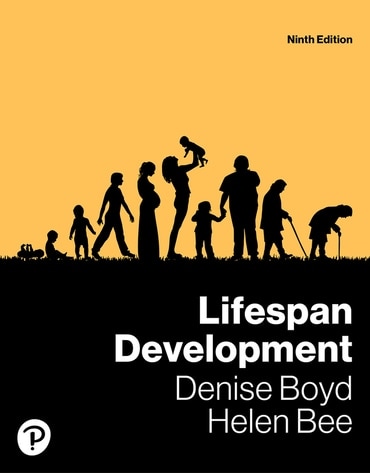Join the PsychSessions podcast to hear Drs. Hudson and Whisenhunt discuss the power of language to influence people's feelings in psychology.
Psychology
Products that bring the science of the mind to life

Inspire engagement
Revel® improves results by empowering students to actively participate in learning. More than a digital textbook, it delivers an engaging blend of author content, media and assessment.

Foster deeper understanding
Adaptive Pathways personalized assessments identify and correct student misconceptions in real time, addressing the most difficult concepts and providing short videos to educate the student.

Pearson+
Empower students to choose how they learn best with easy-to-use eTextbooks and study tools, available in Pearson+.
Intro to Psychology




Developmental Psychology








Explore even more...
Explore titles in Biopsychology, Human Sexuality, Personality Psychology, Psychopathology & Social Psychology





Explore titles for psychology
Learn how human development varies by culture from Clark University’s Lene Arnett Jensen, Senior Research Scientist, and Jeffrey Jensen Arnett, Senior Research Scholar. Teach students to focus on cultural influence.
Join Dr. Charles Levinthal for a discussion of drug-related behaviors among individuals across the lifespan.
-
May is Mental Health Awareness Month: Fostering awareness through education
Mental Health Awareness Month began in 1949 – established by Mental Health America – as a way to increase awareness and reduce stigmas associated with mental health issues, as well as promote the vital role that mental health plays in overall health. As a leader in global education, Pearson recognizes our unique responsibility to support and raise awareness for important issues like this one.
Mental Health vs. Mental Disorder
The CDC defines mental health as “our emotional, psychological, and social well-being. It affects how we think, feel, and act. It also helps determine how we handle stress, relate to others, and make healthy choices.”1 Everyone can take action to improve their own mental health.
Mental illness or mental disorder is a diagnosable condition. A mental health professional can help to diagnosis a disorder and may look at things including symptoms, severity, and length of time to make the diagnosis.
The Numbers Tell the Story
While exact numbers may be challenging to find, it is estimated that millions of Americans are living with a mental health issue. According to the National Alliance on Mental Illness (NAMI), within the United States 1 in 5 adults encounter a mental health issue each year with 1 in 20 experiencing a serious issue each year. 1 in 6 within the ages of 6-17 experience a mental health issue each year.2 And a recent survey done by the National Center for Health Statistics (NCHS) shows that mental health treatment has increased over the last three years. 3 The map below highlights impact across the United States. Chances are you know someone that may be affected by or struggling with a mental health issue. So, for yourself or for someone in your life, educating yourself on mental health issues is important.
Revel - Hudson/Whisenhunt FAQ - Adaptive Pathways
 Play
Play



















